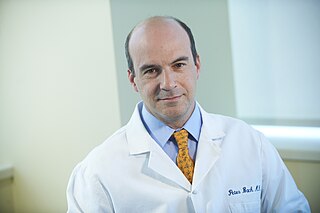Patient safety is a discipline that emphasizes safety in health care through the prevention, reduction, reporting and analysis of error and other types of unnecessary harm that often lead to adverse patient events. The magnitude of avoidable adverse events, often known as patient safety incidents, experienced by patients was not well known until the 1990s, when multiple countries reported significant numbers of patients harmed and killed by medical errors. After recognizing that healthcare errors impact 1 in every 10 patients around the world, the World Health Organization (WHO) calls patient safety an endemic concern. Indeed, patient safety has emerged as a distinct healthcare discipline supported by an immature yet developing scientific framework. There is a significant transdisciplinary body of theoretical and research literature that informs the science of patient safety with mobile health apps being a growing area of research.
Health Dialog is an American company providing personalized population health services to health plans, providers, employers and pharmaceutical manufacturers. The company focuses on providing tools and services to improve quality of care and reduce healthcare costs. It was part of the Rite Aid Corporation until it was acquired by Carenet Health in May 2024.
John E. "Jack" Wennberg was an American healthcare researcher who was a pioneer of unwarranted variation in the healthcare industry. In four decades of work, Wennberg has documented the geographic variation in the healthcare that patients receive in the United States. In 1988, he founded the Center for the Evaluative Clinical Sciences at Dartmouth Medical School to address that unwarranted variation in healthcare.
Unwarranted variation in health care service delivery refers to medical practice pattern variation that cannot be explained by illness, medical need, or the dictates of evidence-based medicine. It is one of the causes of low value care often ignored by health systems.

Donald M. Berwick is a former Administrator of the Centers for Medicare and Medicaid Services (CMS). Prior to his work in the administration, he was President and Chief Executive Officer of the Institute for Healthcare Improvement a not-for-profit organization.
Healthcare reform in the United States has had a long history. Reforms have often been proposed but have rarely been accomplished. In 2010, landmark reform was passed through two federal statutes: the Patient Protection and Affordable Care Act (PPACA), signed March 23, 2010, and the Health Care and Education Reconciliation Act of 2010, which amended the PPACA and became law on March 30, 2010.
Health information technology (HIT) is health technology, particularly information technology, applied to health and health care. It supports health information management across computerized systems and the secure exchange of health information between consumers, providers, payers, and quality monitors. Based on a 2008 report on a small series of studies conducted at four sites that provide ambulatory care – three U.S. medical centers and one in the Netherlands, the use of electronic health records (EHRs) was viewed as the most promising tool for improving the overall quality, safety and efficiency of the health delivery system.
In economics, supplier induced demand (SID) may occur when asymmetry of information exists between supplier and consumer. The supplier can use superior information to encourage an individual to demand a greater quantity of the good or service they supply than the Pareto efficient level, should asymmetric information not exist. The result of this is a welfare loss.
Outcomes research is a branch of public health research which studies the end results of the structure and processes of the health care system on the health and well-being of patients and populations. According to one medical outcomes and guidelines source book - 1996, Outcomes research includes health services research that focuses on identifying variations in medical procedures and associated health outcomes. Though listed as a synonym for the National Library of Medicine MeSH term "Outcome Assessment ", outcomes research may refer to both health services research and healthcare outcomes assessment, which aims at health technology assessment, decision making, and policy analysis through systematic evaluation of quality of care, access, and effectiveness.
Shared decision-making in medicine (SDM) is a process in which both the patient and physician contribute to the medical decision-making process and agree on treatment decisions. Health care providers explain treatments and alternatives to patients and help them choose the treatment option that best aligns with their preferences as well as their unique cultural and personal beliefs.
Decision aids are interventions or tools designed to facilitate shared decision-making and patient participation in health care decisions.

In the United States, healthcare is largely provided by private sector healthcare facilities, and paid for by a combination of public programs, private insurance, and out-of-pocket payments. The U.S. is the only developed country without a system of universal healthcare, and a significant proportion of its population lacks health insurance. The United States spends more on healthcare than any other country, both in absolute terms and as a percentage of GDP; however, this expenditure does not necessarily translate into better overall health outcomes compared to other developed nations. Coverage varies widely across the population, with certain groups, such as the elderly and low-income individuals, receiving more comprehensive care through government programs such as Medicaid and Medicare.
An accountable care organization (ACO) is a healthcare organization that ties provider reimbursements to quality metrics and reductions in the cost of care. ACOs in the United States are formed from a group of coordinated health-care practitioners. They use alternative payment models, normally, capitation. The organization is accountable to patients and third-party payers for the quality, appropriateness and efficiency of the health care provided. According to the Centers for Medicare and Medicaid Services, an ACO is "an organization of health care practitioners that agrees to be accountable for the quality, cost, and overall care of Medicare beneficiaries who are enrolled in the traditional fee-for-service program who are assigned to it".
Unnecessary health care is health care provided with a higher volume or cost than is appropriate. In the United States, where health care costs are the highest as a percentage of GDP, overuse was the predominant factor in its expense, accounting for about a third of its health care spending in 2012.
Karen Davis is president of The Commonwealth Fund, a national philanthropy engaged in independent research on health and social policy issues. Davis is an economist, with a career in public policy and research. Before joining The Commonwealth Fund, she served as chairman of the Department of Health Policy and Management at The Johns Hopkins School of Public Health, where she also held an appointment as professor of economics. She served as deputy assistant secretary for health policy in the Department of Health and Human Services from 1977–1980, becoming the first woman to head a U.S. public health service agency.

Peter B. Bach is a physician and writer in New York City. He is the Chief Medical Officer of DELFI Diagnostics and was previously an attending and researcher at Memorial Sloan-Kettering Cancer Center where he was the Director of the Center for Health Policy and Outcomes. His research focuses on healthcare policy, particularly as it relates to Medicare, racial disparities in cancer care quality, and lung cancer. Along with his scientific writings he is a frequent contributor to The New York Times and other newspapers.
Health policy and management is the field relating to leadership, management, and administration of public health systems, health care systems, hospitals, and hospital networks. Health care administrators are considered health care professionals.
Elliott S. Fisher is a health policy researcher and advocate for improving health system performance in the United States. He helped develop the concept of accountable care organizations and championed their adoption by Medicare. The development of the Affordable Care Act was influenced by his research on disparities in healthcare spending and utilization across the United States. He has strongly supported a rapid transition from fee-for-service to pay-for-performance models in the U.S. healthcare industry. He is a tenured faculty member at Dartmouth College, where he teaches in the Masters in Public Health program.
Health care efficiency is a comparison of delivery system outputs, such as physician visits, relative value units, or health outcomes, with inputs like cost, time, or material. Efficiency can be reported then as a ratio of outputs to inputs or a comparison to optimal productivity using stochastic frontier analysis or data envelopment analysis. An alternative approach is to look at latency times and delay times between a care order and completion of work, and stated accomplishment in relation to estimated effort.
Nancy Keating is an American physician who works at the Brigham and Women's Hospital and is a professor at Harvard Medical School. Her research considers the factors that influence quality care for people suffering from cancer.



